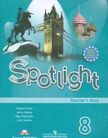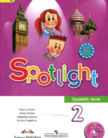|
Elicitation of function and structure through concept questions and use
of time line.
Teacher
writes an example sentence (Alex Toth won $13 million in 1990.) and draws a timeline on the board, marks “NOW”,
“PAST”, “FUTURE” and asks “What date is it today? What year is it now?” Then
T adds “2022” after Sts have answered.
CCQ1: Does
Alex win $13 million now? No
CCQ2: Do you
know when it happened? in 1990
CCQ3: Is the
action finished? Yes
- When do we use the past simple? (to describe events that started
and finished in the past)
· Elicitation the form of verbs in the past simple (regular and
irregular).
Exercise 3 page 10
•
Go through the Learn this! Box with Sts together.
The affirmative form of the past simple is the same for all persons,
singular and plural (I, you, he, they, we, etc.).
T says that now she’s going to explain the rules for verbs in the past
simple, focuses Sts’ attention on the white board adds the headline “past
simple affirmative”, the form and explains that the past simple form of
regular verbs ends like this:
a)
We form the past simple form of regular verbs by adding -ed to the
infinitive (work - worked).
b)There
are some rules about spelling changes:
1) In regular one-syllable verbs with a single vowel followed by a
consonant, we double the final consonant and add -ed: plan - planned, stop - stopped, e.g. He
stopped working.
2) If the verb ends in a consonant + -y, we change -y to -i and add
-ed, e.g.
study
– studied, cry – cried.
3) If the verb already ends in -e, we add -d, e.g. dance - danced.
4) There are three possible pronunciations of -ed endings. While
explaining T adds phonetic symbols to the table on the white board and lets
Sts repeat the pronunciation of each category after her.
- /d/:after all vowel sounds and after voiced consonants
(except /d/) e.g. planned, lived;
- /t/:after all voiceless consonants (except /t/ /k/ /p/
/f/ /s/ /ʃ/ /tʃ/ e.g. worked, looked;
- /ɪd/:after /d/ and /t/ e.g. started, visited.
Drill
choral (3X)/Individual (2X)/Choral (1X)
c)
Some verbs have irregular past simple forms. There are no spelling rules for
these forms; you need to learn them by heart. (With irregular verbs, the verb
changes into a different form. We do not use -ed.) Here are some examples of
irregular verbs: listen and repeat (buy - bought, choose - chose, go - went,
take - took, begin - began, leave - left).
Drill
choral (3X)/Individual (2X)/Choral (1X)
d) The past simple of the verb be has two forms, singular
and plural.
We
use: I/he/she/it -> was
you/we/they -> were
•
Ask students to find more examples for rules a-d in the article, e.g.
Students read the text in exercise 2 again and find the past simple verbs.
They then match the verbs with the rules.
•
Check answers as a class. Sts practise pronunciation repeating the verbs of
each category after T.
a) returned, looked
b) studied, compared, stopped
c) bought, chose, won, felt, gave, found, spent, had
d) were, was
|






Оставьте свой комментарий
Авторизуйтесь, чтобы задавать вопросы.